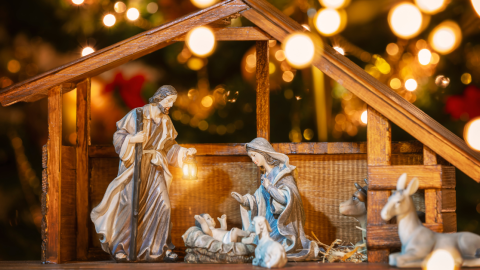Profiles In Prayer: Praying John Hyde
Yesterday eight low-caste persons were baptized at one of the villages. It seems a work of God in which man, even as an instrument, was used in a very small degree. Pray for us. I learn to speak the language very, very slowly: can only talk a little in public or in conversation.”
Hyde's inability to master the complex native languages was due in no small degree to his partial deafness. To the dismay of mission authorities, he devoted most of his time to Bible rather than language study, displaying the withdrawn intensity of a visionary rather than the engaging demeanor of the traditional missionary. In time, however, Hyde gained a certain fluency, though he never lost his zeal for Scripture. With periods of outright persecution by natives, and few, if any conversions, Hyde began leading his fellow missionaries in intercession for India. So deep was his call to prayer that by 1899 he began spending entire nights face down before God. In a letter to his college he wrote:
Have felt led to pray for others this winter as never before. I never before knew what it was to work all day and then pray all night before God for another… In college or at parties at home, I used to keep such hours for myself, or pleasure, and can I not do as much for God and souls?”
In 1904, Indian Christians and western missionaries gathered for the first of an annual series of conventions at Sialkot in what is today Pakistan. To support this time of spiritual renewal, John Hyde and his friends formed the Punjab Prayer Union, setting aside half an hour each day to pray for revival. The results of their prayers were plainly seen at the Sialkot Convention as a special anointing fell upon those gathered. Year by year the prayer union fasted and prayed, and at each convention a growing urgency for evangelism and intercession filled each attendee. John Hyde emerged as the prayer leader, and all were amazed at both the depth of his spiritual insight, and the ferocity of his burden for India.
By 1908, John Hyde dared to pray what was to many at the convention an impossible request: that during the coming year in India one soul would be saved every day. Three hundred sixty five people converted, baptized, and publicly confessing Jesus as their Savior. Impossible -- yet it happened. Before the next convention John Hyde had prayed more than 400 people into God's kingdom, and when the prayer union gathered again, he doubled his goal to two souls a day. Eight hundred conversions were recorded that year, and still Hyde showed an unquenchable passion for lost souls.
At the 1910 convention, those around Hyde marveled at his faith, as they witnessed his near violent supplications, "Give me souls, oh God, or I die!" Before the meeting ended, John Hyde revealed that he was again doubling his goal for the coming year. Four souls a day, and nothing less. During the next twelve months John Hyde's ministry took him throughout India. By now he was known as "Praying Hyde," and his intercession was sought at revivals in Calcutta, Bombay, and other large cities. If on any day four people were not converted, Hyde said at night there would be such a weight on his heart he could not eat or sleep until he had prayed through to victory. The number of new converts continually grew.
It was in Calcutta that friends persuaded Hyde to see a doctor about his rapidly deteriorating health. The years of travail had obviously taken a toll. Yet no one expected the medical examiner's incredible diagnosis. John Hyde's heart had shifted out of its natural position on the left side of his chest to a place over on the right. It was unlike anything the doctor had seen before, and he warned Hyde that unless he got complete rest he would be dead in six months.
In fact, Praying Hyde lived for nearly two more years, long enough to see a wave of revival sweep through the Punjab and the rest of India -- and long enough to have his own personal vision enlarged. Before he died, he shared what God had shown him:
On the day of prayer, God gave me a new experience. I seemed to be away above our conflict here in the Punjab and I saw God's great battle in all India, and then away out beyond in China, Japan, and Africa. I saw how we had been thinking in narrow circles of our own countries and in our own denominations, and how God was now rapidly joining force to force and line to line, and all was beginning to be one great struggle. That, to me, means the great triumph of Christ. We must exercise the greatest care to be utterly obedient to Him who sees all the battlefield all the time. It is only He who can put each man in the place where his life can count for the most.



